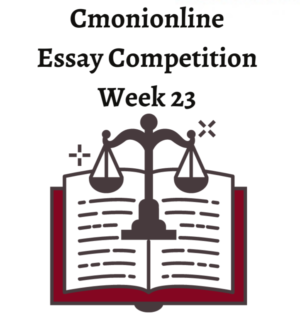Machebe was one giant of a man who had the impressive build of an athlete. His square-shaped face, with its piercing, black eyes, beaky nose, high cheekbones, powerful and aggressive jaw, revealed his being a no-nonsense man. Given his nature, Machebe was not even a jot lenient with his only son who had been rather over-pampered by his mother.
Machebe had four beautiful daughters before a boy came along, and he thought the boy was a generous gift from Providence, but he was not as given to making much of it as his wife who would not even let a scratch come on their son. Right from the time Chiedu was born, his mother, Nkasi, felt her life had become even more complete and that she had now a son to brag about during rows with other mothers in the neighborhood.
Machebe could remember the day he had walked in to his lounge and found it to be a complete mess. There was a clutter of food particles and an empty, unwashed plate on his centre table. Even more food particles littered the linoleum as if a poultry farmer had sprinkled chicken feed on the floor and had gone to fetch his hungry birds to have lunch. On the long sofa was sprawled Chiedu, soundly asleep, snoring disturbingly, his phone in his hand with a film showing on the screen. Machebe would have pardoned all of that if the telly had not been left on too. No one else was in the lounge at that moment, and all of Machebe’s mind was busy with trying to figure out how long his television had been left on.
He didn’t have a problem with anyone turning the television on, but if you were going to turn it on, you would sit on one of the sofas and watch it. He thought of how much power had been expended because an unruly son had decided to be inconsiderate too. At once, he lashed out his big palm on Chiedu who came awake with a wild cry. Almost immediately, Nkasi emerged from her room and joined the father and son in the lounge. She could see the glitter of rage in Machebe’s eyes, but she wouldn’t have him maltreating her son.
Ignoring his wife’s presence, Machebe had turned to his son and asked, “What is the meaning of this nonsense? Why would you keep my house like this? What if I had come in with a visitor?”
Fearlessly, Chiedu, soothing his arm that Machebe had hit, returned, “Is that why you hit me?”
In a shrill hiss of rage, Machebe had bolted for Chiedu, but the stripling was wise enough to run towards his mother who screened him behind her; all in split seconds. Machebe wouldn’t be rid of his vexation. He demanded that Nkasi stepped out of his way so that he could lay hold of Chiedu.
“What madness has come over you?” Nkasi had asked. Without meaning to, Machebe had lifted his palm to smack the insubordination out of his wife, and only with a desperate rush of control did he stop himself, but that did not stop her from lurching insults at him, daring him to go ahead and hit her. Since that eventful day, Machebe had made sure he didn’t involve himself with the chumminess between his wife and son. He chose to become a silent observer, saying yes to whatever decisions Nkasi took concerning Chiedu’s future.
He had allowed her to pay the fee to have all the answers to Chiedu’s Senior School Certificate Examination questions. After that payment, on the dawn of each exam, Chiedu would get the answers to the questions he would see in the exam hall as a text message from the agents his mother had paid. He would then make a note of all the answers in blank leaves and sneak them into the exam hall. Machebe had not agreed at first, swearing on his mother’s grave to never be a party to examination malpractice, but Nkasi was insistent. She had said that all her friends were doing it for their children, and that there was no child in Nigeria who wouldn’t cheat in the examinations.
On the night Machebe finally agreed, he had still promised her that he would only pay the fee all candidates had to pay to be eligible to write the exams. Nkasi had lifted her shoulders in a mocking gesture and given him a monologue on how it was hatred he had for their son. The following day, she went on to pay the fee to the unscrupulous agents who assured her that her son would make distinctions in all his subjects once they supplied him with their legitimate answers.
“What madness has come over you?” was the same question Nkasi had asked Machebe when he began yelling about his son’s truancy. It was exam day again, and this exam was a huge determinant of Chiedu’s next level of education. All students who wanted to advance to the tertiary institutions had to sit the Unified Tertiary Matriculation Examination. Chiedu was to have his exam by 09:00hrs, and it was already eight-forty, and he wasn’t out of his room yet. That got Machebe gravely concerned. His son could miss his exam and have himself to blame.
Machebe had yelled for Chiedu, a couple of times, but he never came out. Nkasi, demanding that her husband remained calm, would go into Chiedu’s room and emerge without the boy. What Machebe did not know was that Chiedu had received answers to his UTME questious from his agents, and he was putting them down on leaves of paper. Machebe did not know that his wife had paid to let Chiedu have answers again. The UTME was a tougher exam than the Senior School Leaving exams in that the former was a computer-based test and the latter, a paper-based test, so it was harder for unsavoury persons to get hold of the questions. Hence, Chiedu’s agents took longer than usual to supply the answers.
09:00hrs was only two minutes away when Chiedu stepped out of his room. He had copied down all the answers his agents had given him on a sheet that he had tactically hidden in his crotch. Machebe’s features were already sharpened by rage and impatience, but he said nothing when Chiedu came out. He climbed to his feet, and marched to his car that was waiting outside. Chiedu followed his father, and when he gave his mother a final look, she was smiling and jerking both of her thumbs at him.
Machebe pulled up at the exam venue, an ICT firm, and he could see a couple of youths, dressed smartly and queued up for the exam. They hadn’t started. He silently thanked God, and just when Chiedu was about to get off, he asked him to wait, and they both prayed for the success of the exams. Chiedu got off and Machebe promised to be back in two hours time to drive him home. Chiedu joined the queue, and in a couple of minutes, the candidates began moving in. They were being ushered into a large room which had a total of five hundred desktops and eight CCTV cameras.
Chiedu was only slightly disturbed when the guard ran his hand over him to make sure he didn’t have external material, but once he was given the pass without the sheet of paper he had hidden getting found, he grew more confident. He settled into the desk where his registration number had been pasted, and staring at the cameras, he concluded that they had to be faulty. Within a couple of minutes, every candidate had entered and they were asked by the chief invigilator to start. Cautiously, Chiedu, loosened his belt and began to take out the sheet of paper he had hidden. He didn’t take any notice of one of the invigilators that was standing behind him.
Meanwhile, Machebe had driven home and began chiding his wife for Chiedu’s unruliness. He accused her of being the reason the boy took nothing serious in his life, and assured her that she would be the reason he would become a failure in future. Nkasi was not quiet. She had her own vocabulary of accusations which she was lurching at him. Perhaps, they wouldn’t have been so bitter against each other if they had the faintest idea that their only son had been arrested for exam malpractice.
Exam malpractice has become a norm in our society. Nkasi, in this narrative, as ignorant as she is, had pointed out that “all of her friends paid to have their children cheat in their exams”. By analysis, that is significantly true to some extent. However, we have to know that there is nothing normal about cheating in an exam. Exam malpractice is a punishable offence and should be discouraged by every well-meaning parent. There are no shortcuts to success.
Johnson Onyedikachi is a teenage Nigerian creative writer who has unpublished manuscripts of poetry and plays. He recently picked interest in crime fiction and in August 2019, enrolled in an online course where he gained proficiency in article/journal writing including the use of referencing formats (MLA and APA style). He wrote in via johnsonshaqs@gmail.com







